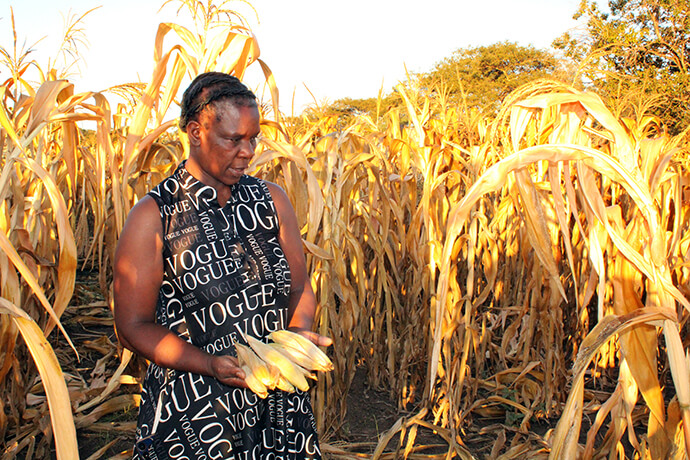In a transformative push toward smarter, more inclusive agricultural systems, the Food and Agriculture Organization of the United Nations (FAO) has intensified its digital agriculture efforts in Zimbabwe by launching a Digital Fair in the Bikita district of Masvingo province. The event forms part of FAO’s broader Fostering Digital Villages Initiative (FDiVi), a pioneering programme designed to embed digital technologies, including artificial intelligence, into rural agrifood systems across Malawi, Rwanda, and Zimbabwe.
The fair served as a vibrant platform where digital service providers, smallholder farmers, agri-entrepreneurs, extension officers, and local policymakers converged for hands-on exposure to new digital solutions in agriculture. Participants explored mobile-based market platforms, AI-driven advisory systems, and digital literacy tools tailored for use in low-connectivity, rural environments.
Advancing Climate-Smart and Inclusive Agriculture Through Technology
At the heart of the event was the goal of bridging the digital divide in rural farming communities, ensuring that innovation is accessible, scalable, and sustainable. Speaking during the digital fair, Patrice Talla, FAO’s Subregional Coordinator for Southern Africa and Representative to Zimbabwe, said the initiative “facilitates the delivery of innovative agricultural extension services that boost productivity, improve market access, and foster inclusive rural transformation.”
The FDiVi project integrates on-farm and off-farm components by providing digital tools and services that address both production and market challenges. Notably, it targets marginalized groups—youth and women in agriculture—who are often left out of tech-driven solutions but have immense potential as change agents.
Community Endorsement and Early Impact
Local officials expressed enthusiastic support for the digital initiative. Bernard Hadzirambwi, District Development Coordinator, praised the programme, emphasizing the potential for rural resilience and innovation through digital connectivity. “Rural innovation thrives when communities connect and interact with digital technology,” he noted.
Nobert Chiduza, District Agricultural Extension Officer from the Ministry of Lands, Agriculture, Fisheries, Water and Rural Development, shared that farmers explored AI-powered decision-support tools, mobile trading platforms, and digital extension systems during the fair. “Digital technologies are not just tools,” he stressed, “they are enablers of climate-smart agriculture and inclusive development in our district.”
Youth Engagement: A Catalyst for Transformation
The fair also drew a strong response from young farmers, many of whom are eager to harness digital tools to improve yields and connect to broader markets. Sheunesu Njeke, a 26-year-old farmer, captured the spirit of the event:
“Before the digital fair, I didn’t know how much technology could change the way I farm. Now, I’ve learned about AI tools that help me plan better, and I can connect directly with buyers through my phone. As a young farmer, this gives me confidence to explore new opportunities.”
This testimonial reflects the broader impact the initiative is expected to have in transforming not just farming techniques, but farmer mindsets, especially among the rural youth.
Building the Digital Village: Infrastructure and Capacity Building
The FDiVi project is currently being rolled out in Bikita and Mhondoro-Ngezi districts, where dedicated digital hubs are being established. These hubs will offer:
-
Free internet access
-
Computer workstations
-
Digital training modules and extension content
-
Market and weather information services
-
AI-based planning and advisory tools
These facilities aim to become nuclei of innovation, promoting peer-to-peer learning, real-time agricultural support, and inclusive value chain integration.
Digital Fairs to Become Annual Fixtures in Rural Agriculture Shows
Encouraged by the success of the Bikita event, FAO has announced plans to integrate Digital Fairs into annual District and Ward-level Agriculture Shows, institutionalizing the initiative and ensuring ongoing exposure and onboarding of farmers to emerging digital solutions.
Going forward, FAO and its partners will also focus on:
-
Supporting rural digital innovators
-
Training agri-entrepreneurs to scale digital platforms
-
Developing policies to safeguard data privacy and access equity
-
Mainstreaming gender-sensitive and youth-inclusive tech adoption strategies
Toward a Digitally Empowered Agrifood System
The Fostering Digital Villages Initiative stands as one of FAO’s corporate flagship programmes, aimed at making rural areas prosperous, digitally connected, and socially inclusive. By equipping rural populations with the tools to make data-driven decisions, FAO envisions a future where rural transformation is led from within—with communities empowered to shape their development trajectory.
With Zimbabwe as one of its pilot countries, the FDiVi project is demonstrating how thoughtful, inclusive digital interventions can strengthen food security, economic opportunity, and climate resilience in rural Africa.
Source - www.devdiscourse.com













